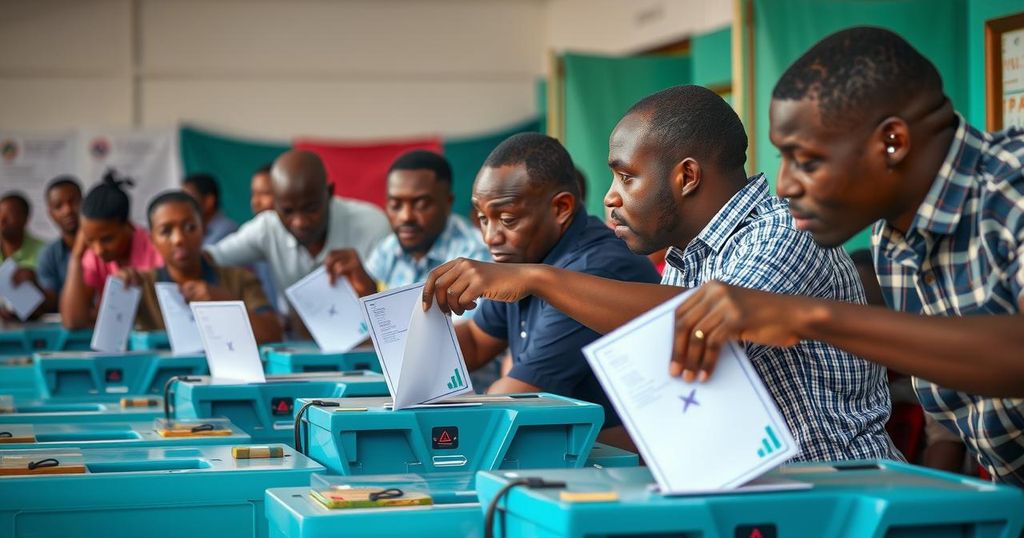Voters in Comoros are electing members of a 33-seat parliament amid accusations of electoral irregularities following President Azali Assoumani’s re-election. Approximately 338,000 people are registered to vote, with results anticipated by Friday. Opposition parties are divided, with some calling for boycotts while others advocate participation to highlight governmental flaws. Assoumani’s long-standing tenure, marked by allegations of authoritarianism, intensifies the political stakes in this election.
Voters in the Comoros archipelago are participating in elections for a 33-seat parliament, reflecting a vital moment in the democratic process of this Indian Ocean nation. This election comes one year after President Azali Assoumani’s re-election, which was criticized by the opposition for alleged irregularities. Approximately 338,000 registered voters are awaiting the results, expected by Friday. The parliamentary elections, last held in January 2020, feature nearly 100 candidates approved by the country’s Supreme Court. Assoumani’s governance since a coup in 1999 has been marked by multiple elections, but his opponents accuse him of authoritarian governance and preparing his son, Nour El-Fath, for succession. Several opposition factions, such as the Juwa party led by former President Ahmed Abdallah Sambi, advocate for a boycott, while others are committed to participating in order to highlight systemic flaws in the regime. Hamidou Karihila from the opposition Hope of the Comoros party stated that participation could expose weaknesses in the governmental system and hasten its decline.
The political landscape in Comoros is characterized by its historical challenges, particularly regarding democratic governance and electoral legitimacy. President Azali Assoumani, who has been in power in various capacities since a coup in 1999, has faced numerous criticisms and allegations of consolidating power and moving toward authoritarianism. The election of a parliament, which last occurred in January 2020, is a crucial element for the nation’s governance. Opposition parties have varied responses to the current elections, with some calling for boycotts while others seek to engage in the electoral process despite the challenging political environment.
The electoral process in Comoros represents both a challenge and an opportunity for the country’s future governance. As citizens cast their votes for parliament members, the actions of opposition parties and the ultimate election results will further inform the trajectory of Comoros’ political evolution. With systemic criticisms emerging against Assoumani’s rule, the response of the electorate will be indicative of their aspirations for democratic governance and accountability.
Original Source: www.canberratimes.com.au






